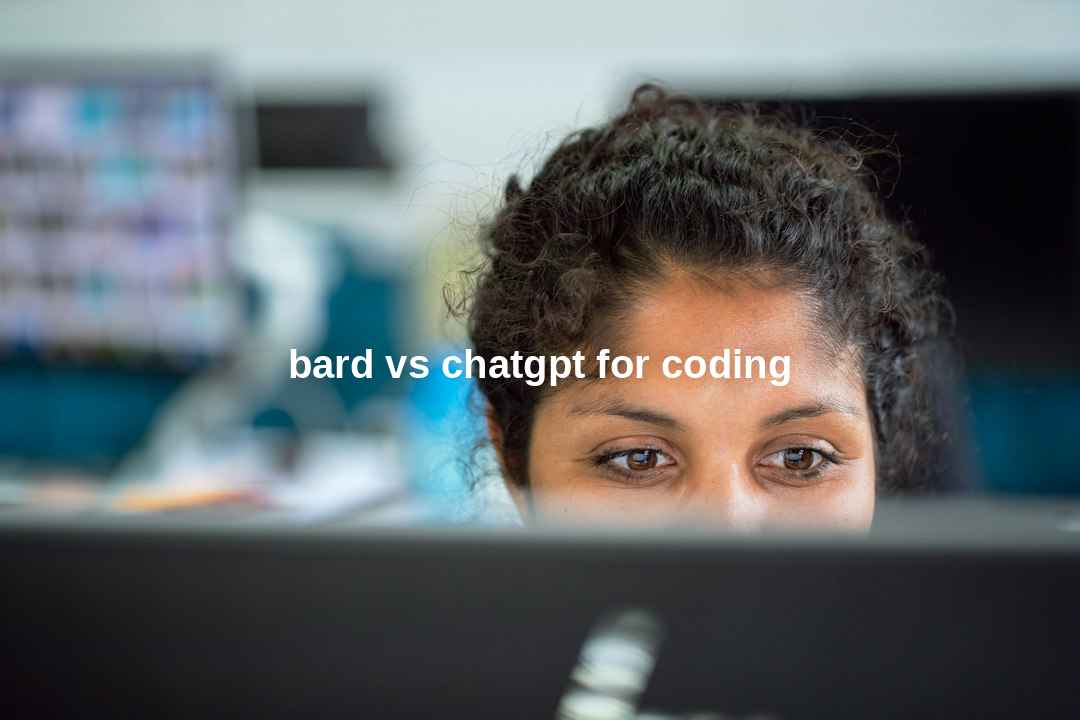Introduction:
In the ever-evolving landscape of artificial intelligence, two titans have come to the forefront, promising to revolutionize the way we approach coding and development. In the midst of this transformative era, the software development community finds itself at a crossroads, making a pivotal decision in selecting the most efficient and capable AI-powered assistant. Enter the comparison of Bard vs ChatGPT for coding, a topic that has sparked intrigue and debate amongst programmers, developers, and tech enthusiasts alike. Each AI has its strengths, concerns, and capabilities, making it crucial for users to understand the differences before choosing the right tool to enhance their coding efficiency and effectiveness.
| Bard | ChatGPT |
|---|---|
| Developed by Google | Developed by OpenAI |
| Utilizes Google’s LaMDA for dialogue understanding | Based on the GPT (Generative Pre-trained Transformer) architecture |
| Designed to offer conversational AI experiences | Known for producing human-like text responses |
| Integrates with Google’s suite of tools and services | Widely used for coding assistance and has a dedicated variant, ChatGPT with programming capabilities |
Unveiling the Contenders: A Closer Look at Bard and ChatGPT
Decoding the DNA of AI-Assisted Coding
At the heart of the debate between Bard and ChatGPT lies a fundamental curiosity about the core technologies that empower these AI assistants. Bard, Google’s latest AI chatbot, is built upon its Language Model for Dialogue Applications (LaMDA), designed to understand and facilitate discussions across a myriad of topics. Its capabilities, while promising, are still being explored for their potential in coding applications.
On the other hand, ChatGPT, a progeny of OpenAI, is powered by the mighty GPT (Generative Pre-trained Transformer) series of language models, which have been specifically fine-tuned to understand and generate code through versions like Codex. This model has already demonstrated its prowess in the programming domain, providing assistance with writing code, debugging, and even learning from the user’s coding style to offer more personalized suggestions over time.
The underpinning strength of ChatGPT in the realm of coding is its capacity to not only understand the semantics of programming languages but to anticipate the needs of developers. With an ability to sift through data at remarkable speeds and accuracy, ChatGPT can significantly reduce the time and effort spent on routine coding tasks.
Bard, although a relative newcomer to the scene, holds the promise of Google’s expertise in AI and machine learning through years of refining search algorithms and natural language processing capabilities. While its application in coding is yet to be established, the potential for integration with Google’s existing suite of tools and services suggests a seamless experience for developers embedded within the Google ecosystem.
These AI assistants represent more than just tools; they are potential collaborators in the creative and structured process of coding. As we uncover their capabilities, the choice between Bard and ChatGPT for coding will become clearer to those seeking to empower their programming with AI.
As we continue to unravel the layers of Bard and ChatGPT’s capabilities, it is essential to delve into the aspects that make each unique, as well as the practical implications of their deployment in real-world coding scenarios.
The Programming Prowess of Bard and ChatGPT Analyzed

Evaluating AI Tools for Code Generation and Problem-Solving
When scrutinizing the programming capabilities of Bard and ChatGPT, it’s essential to note the differences in their approach to coding-related tasks. ChatGPT has been trained on a dataset that includes numerous programming languages, and its proficiency in code generation and troubleshooting is well-documented, having been put to the test in various coding challenges and environments.
ChatGPT stands out for its sophisticated understanding of code structure, logic, and syntax, enabling it to assist programmers in detecting errors and suggesting code optimizations effectively.
While Bard is designed with Google’s advanced conversational AI, its performance in coding tasks is still under evaluation, and its strengths may lie in different areas of AI interactions, such as using context to provide more human-like conversational experiences. This could imply a different approach to programming assistance, focusing perhaps more on understanding the programmer’s intent and providing guidance rather than generating or debugging code directly.
Real-Time Information and Security: Weighing the Advantages
Addressing Data Privacy and AI Responsiveness in Development
An essential aspect of using AI in coding is the need for access to current data and secure interactions. Bard’s potential integration with Google’s information repositories could offer developers access to real-time data during coding sessions. This means that Bard could help to provide up-to-date information, which is vital for tasks that require the most current data, like developing apps that rely on real-world information.
The integration of Bard with Google’s data might offer an edge in coding scenarios where access to real-time information is paramount, elevating the quality and relevancy of software solutions.
ChatGPT, while not inherently linked to real-time data, prioritizes user privacy and data security. Its model ensures that interactions remain confidential, a key aspect for developers who work with sensitive code or data. OpenAI has incorporated security measures to respect user privacy while allowing developers to benefit from the AI’s powerful code synthesis and problem-solving capabilities.
Integration and Practical Application of Bard and ChatGPT in Coding
Exploring Use Cases for Streamlined Development Workflows
In the realm of practical applications, both Bard and ChatGPT showcase the potential to transform coding workflows. ChatGPT can be integrated into various development environments, providing code suggestions and documentation support directly within the IDE (Integrated Development Environment). Developers can leverage ChatGPT to improve their productivity by automating repetitive tasks, guiding the coding process, and even performing code reviews.
ChatGPT’s versatility can significantly enhance the efficiency of development teams by offering deep coding insights and suggestions, tailored to fit the specific context of their projects.
Bard’s use in coding, while not yet clearly defined, may find its niche in leveraging Google’s plethora of services, possibly providing a holistic environment where coding assistance is deeply integrated with search, cloud computing, and other Google services, allowing developers to have a more interconnected workflow.
Overall, the choice between Bard and ChatGPT for coding will likely depend on the specific needs of the developer or the team, whether it’s the depth of programming assistance, the need for real-time information, or the preference for a more conversational AI that understands the nuances of human dialogue.
Choosing the Right AI Assistant for Your Coding Needs: Conclusions and Recommendations
In conclusion, the decision to select an AI coding assistant is not one-size-fits-all. Each contender in the match-up of Bard vs ChatGPT for coding brings unique strengths to the table. ChatGPT’s robust programming support, including code generation and problem-solving, makes it a formidable tool for developers seeking an AI that can actively participate in the coding process. Bard, while newer in the arena, offers the potential to harness Google’s vast data and services ecosystems, which could revolutionize how developers integrate up-to-date information and resources into their workflows.
Ultimately, the best choice hinges on the specific needs, preferences, and environment in which a developer or a team operates. Users interested in cutting-edge conversational AI experiences might lean towards Bard, anticipating future capabilities that Google may unveil. Conversely, those who prioritize deep coding expertise and a proven track record might prefer ChatGPT, especially with its immediate utility in various programming tasks.
- ChatGPT is a cutting-edge AI known for its ability to assist with code writing, debugging, and providing personalized coding suggestions.
- Bard by Google is poised to leverage real-time information and integrate well with Google’s suite of tools, potentially offering a more seamless experience for users embedded in that ecosystem.
- The real-time data access possible with Bard could benefit developers working on projects that require up-to-date information.
- ChatGPT prioritizes user privacy and security, making it a reliable partner for developers handling sensitive data.
- While Bard’s role in programming remains to be fully explored, ChatGPT can already be integrated within IDEs, enhancing developer productivity.
- Both AI systems present different strengths, and the choice between them should be tailored to the user’s specific requirements around coding assistance and workflow integration.
Whether developers will benefit more from the conversational finesse and potential Google integration of Bard or the established coding expertise of ChatGPT will depend on the evolving capabilities of these AI models and the shifting landscapes of the tech industry. The deliberation between Bard vs ChatGPT for coding is not just about choosing an AI; it’s about shaping the future of how we develop, interact with, and ultimately, how we understand code.
Frequently Asked Questions about AI Assistants for Coding
Is Bard better in coding?
While Bard shows promise with its ability to query the internet for information, making it a very proficient researcher, its overall superiority in coding has not been conclusively established as it is a fairly new player in the field. As stated on November 8, 2023, both Bard and ChatGPT perform admirably in generating, debugging, and explaining code, often considered neck and neck. However, when it comes to research-oriented tasks connected to coding, Bard’s ability to pull real-time data from the web could give it an edge.
Is ChatGPT good for coding?
Yes, ChatGPT is quite adept at coding. It has been trained on a variety of programming languages and can assist with specific coding tasks, library selection, and problem-solving. As indicated in a source from 7 days ago, ChatGPT is particularly useful for supporting coders in selecting the appropriate libraries for a given project and facilitating an interactive discussion to help narrow down options. However, it is not designed to build complete applications from scratch but rather to augment the coding skills of a human developer.
Can Google Bard be used for coding?
Yes, Google Bard can be used for coding, assisting developers by leveraging its AI capabilities. It is suggested that learning to use Bard for coding tasks has the potential to increase productivity substantially. With AI rapidly evolving, Bard provides an interactive, conversational experience that can streamline coding workflows, although its specific capabilities and the extent to which it can enhance productivity in coding remain to be fully explored.
Which AI is best for coding?
Selecting the best AI for coding depends largely on the needs of the development team and the specifics of the project. As of January 16, 2024, among several AI coding tools available, AIXcoder stands out by offering support for languages like Java, Python, and JavaScript, along with features such as automated routine task handling, AI-powered code completion, and real-time code analysis with error checks. However, the choice of the best AI tool should be based on the specific task requirements, language support, features, and the individual or team’s preferred workflow.


